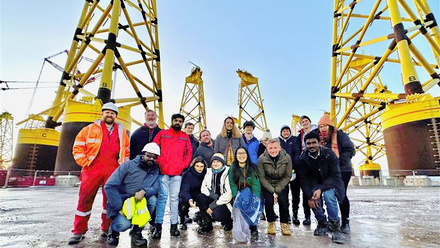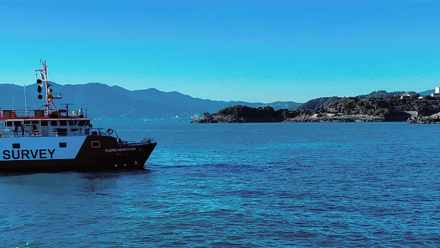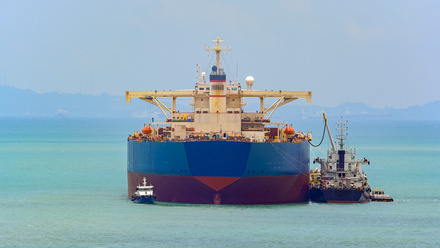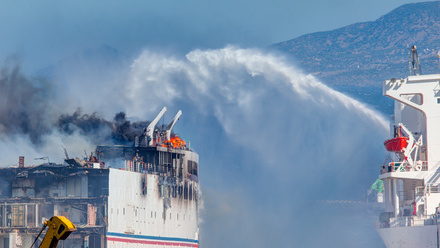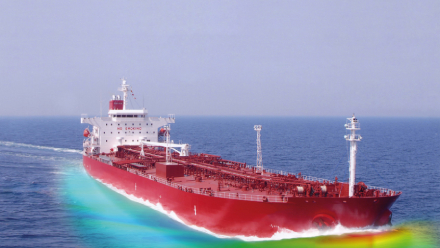Embracing new nuclear horizons in shipping
In the quest for sustainable alternatives to conventional propulsion systems in the ongoing battle against climate change, nuclear-powered ships have emerged as a promising option, with experts and industry leaders outlining important, but surmountable challenges.
Speaking at a CORE POWER hosted event, Chris Hartnoll, HICO Investment Group CEO and managing director, underscored the significance of small modular nuclear reactors for maritime use, explaining they align well with the industry's objective of decarbonising energy supplies. These reactors could play a pivotal role in floating production, offering a cleaner and more efficient alternative.
Looking ahead, Tobi Menzies, director of business development at CORE POWER, saw a future where nuclear electric ships deliver not only faster speeds but also increased cargo capacity, transforming the industry's efficiency.
However, embracing nuclear propulsion in the maritime sector poses certain challenges. Hartnoll raised a crucial concern about the acceptance of nuclear-powered vessels at various ports worldwide. Some nations lack well-established nuclear industries and regulations, making regulatory approval a key hurdle.
Bjørn Højgaard, CEO of Anglo-Eastern, meanwhile, emphasised the need for substantial training and adaptation within the industry. Transitioning from complex and long-standing combustion engines to nuclear power requires a concerted effort in terms of workforce readiness.
“Combustion engines are actually insanely complex and very, very troublesome. We take it for granted now, but only because we've done it for hundreds of years. We've got a big hump ahead of us in terms of training and getting ready for new nuclear,” he said.
On a practical front, financing and insurance need to be developed in tandem. From an insurance perspective, Patrick Ryan, UK P&I Club's sustainability director and head of club secretariat, anticipated changes. Although the insurance industry currently excludes nuclear risks, Ryan believes there will be a re-evaluation when nuclear power becomes a tangible reality in maritime transport.
“There are particular issues that happen with nuclear,” he explained. “As a liability insurer, we really need to understand those risks so that we can deliver products to enable these new technologies, which I think have to be part of the future.”
Simon Wilcock, senior underwriter with Nuclear Risk Insurers, underscored the need to manage liability and accumulation risks in nuclear third-party liability insurance. The industry must ensure clarity in handling liability cases, given the rare but high-impact nature of nuclear risks.
“For this transition to civil nuclear operations, the presence of a nuclear licence for highly qualified and motivated operators is going to be key,” he concluded.
Regarding finance, Michael Parker, global industry head of shipping and logistics at Citi, acknowledged the radical transformation nuclear power represents. While it entails substantial upfront costs for new ships, designs and installations, Parker sees potential long-term financial benefits, adding predictability to an historically volatile industry.
“You need new ships, new designs, completely new installations and most of all, a huge upfront capital cost associated with the fuel,” he said. “In terms of financing it looks like a problem, but actually, it could be rather a benefit if you look at it as an upfront cost that can amortise over the life of the vessel.”
There is also the thorny issue of regulations to consider for new nuclear endeavours.
Peter Buchan, shipping director at Nuclear Transport Solutions, stressed the importance of harmonising regulations. He noted that transporting nuclear material by sea and using nuclear propulsion for vessels are not new concepts. The challenge therefore lies in unification: “From my perspective, it's about how do we take that knowledge and understanding from two separate industries and apply it into one consistent regulation, be that maritime safety, nuclear safety, or nuclear security?”
Overall, while nuclear-powered ships hold great promise, regulatory approval, workforce training, and the standardisation of safety and security measures will be pivotal for successful adoption.

